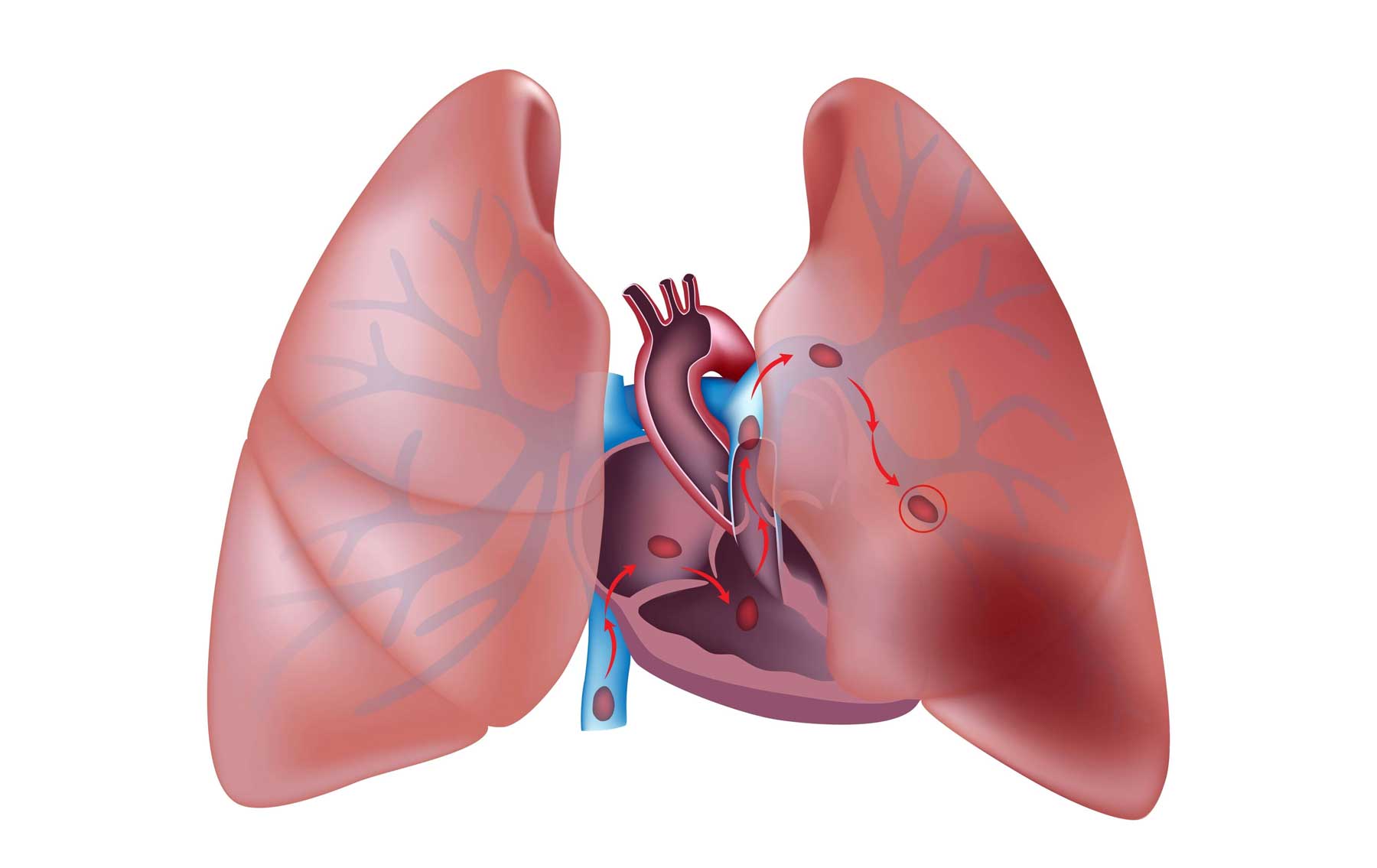Deep Vein Thrombosis Thrombosis is the formation of a blood clot (thrombus), which can partially…

Heart disease Symptoms
Heart disease often does not produce symptoms, and for some people the first sign of heart disease is a heart attack. Others, however, may experience angina, a type of chest pain that results from an inadequate supply of oxygen to the heart muscle. Healthy coronary arteries can easily supply the heart with as much oxygen as it needs. Arteries that have been narrowed or damaged by atherosclerosis cannot provide sufficient oxygen, especially during times of increased demand, such as when a person exercises or is under emotional stress.
Angina can be temporary moderate to severe pain or pressure in the center of the chest that sometimes radiates to the left shoulder and down the left arm or to the throat, jaw, and lower teeth. Sometimes the pain spreads to the right shoulder and down the right arm. Angina usually occurs when a person is active and subsides when he or she stops and rests. Other symptoms that sometimes occur along with angina include difficulty breathing, sweating, nausea, and dizziness.
Although angina is usually a symptom of heart disease, it can also result from other health problems. For example, a defect in the aortic valve may reduce blood flow to the coronary arteries, thereby reducing the supply of oxygen to the heart muscle. Arterial spasm, which causes sudden temporary narrowing of a coronary artery, can also cause angina. Severe anemia, which may decrease the supply of oxygen to the heart, is another possible cause of angina.
In some people, symptoms of congestive heart failure such as shortness of breath; persistent coughing up of sputum; or swollen legs, ankles, and feet are the first signs of heart disease. Heart failure occurs when the heart muscle is too weak to pump an adequate supply of blood to body tissues. Occasionally, symptoms of conditions that do not involve the heart and blood vessels, such as indigestion or gastroesophageal reflux disease, can be mistaken for angina. If your doctor determines that you do not have heart disease, he or she will perform additional tests to find the cause of your symptoms and provide appropriate treatment.



